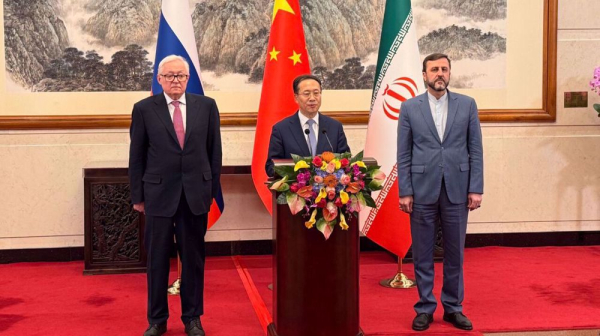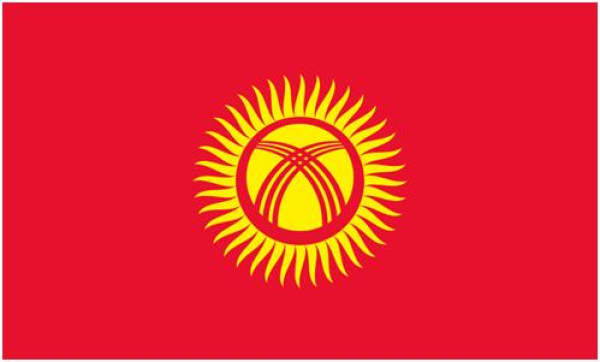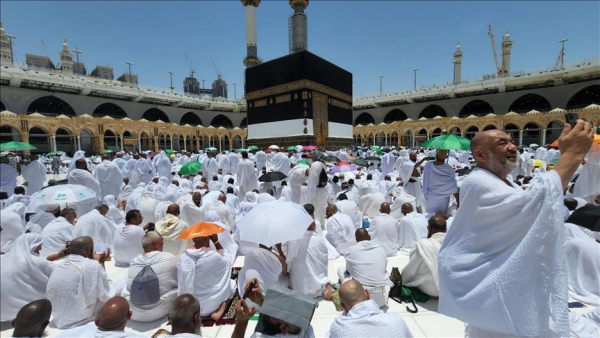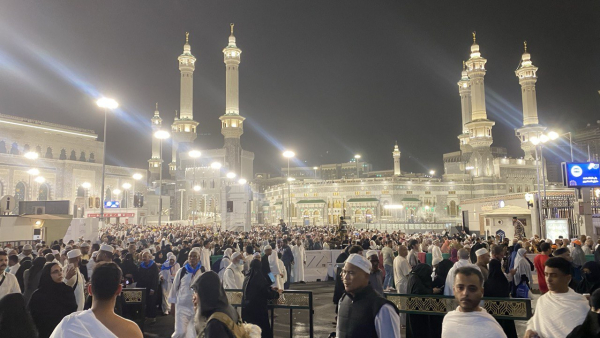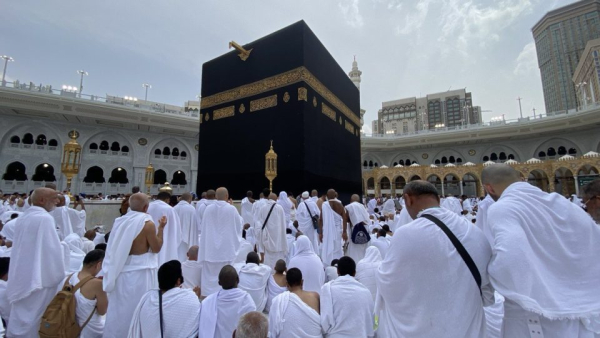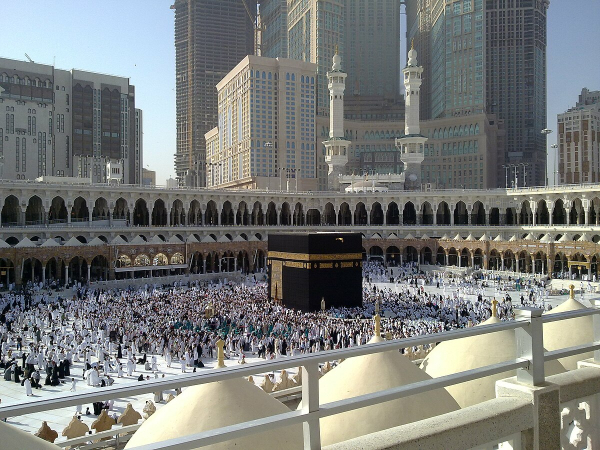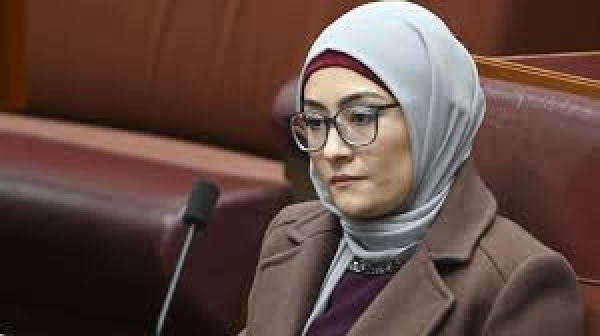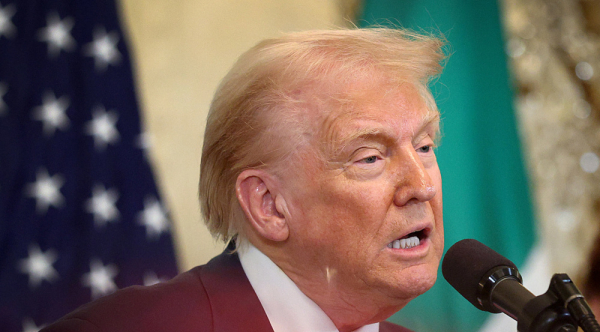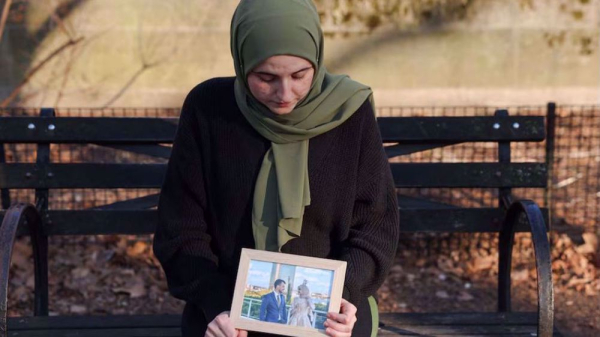zarezadeh
Iran: New sanctions demonstrate US 'hypocrisy, infringement of law'
Iran has strongly condemned new US sanctions against Oil Minister Mohsen Paknejad and some entities and vessels involved in the country's crude exports as a testament to Washington's "infringement of the law and hypocrisy."
Foreign Ministry spokesperson Esmaeil Baghaei made the remarks on Friday, a day after the US Treasury Department designated Paknejad and three entities engaged in the Iranian oil trade in China, and named three shipping vessels as blocked property for their use in the transactions.
The sanctions followed the delivery to Iran of a letter US President Donald Trump had written to Leader of the Islamic Revolution Ayatollah Seyyed Ali Khamenei. During an interview with Fox News last week, Trump threatened military action against Tehran if it did not engage in talks on a new nuclear deal.
Baghaei said the new bans refute the repeated claims by American officials about their readiness for negotiations and show the US hostility to the development, progress, and prosperity of the Iranian people.
He also noted that the US "addiction" to the policy of sanctions and pressure against independent countries violates the rule of law at the international level and poses a threat to international peace and security.
"The evil actions of the United States to disrupt Iran's economic and trade exchanges with other countries are a clear violation of the fundamental principles and rules of international law and free trade," he said.
"The Islamic Republic of Iran holds the US government responsible for the consequences and effects of such unilateral and illegitimate actions."
The spokesman added that "unseemly US actions" like the one targeting Iranian oil minister cannot affect the national resolve to defend the country's independence and dignity and strive for its development and prosperity.
In a statement, Iran's Ministry of Petroleum said Paknejad was sanctioned due to his extensive efforts to sell Iranian oil.
"Sanctions against Paknejad and a group of oil managers, as well as companies and individuals related to the Iranian oil industry are meant to exert maximum pressure on the Islamic Republic," it said.
"Iran has repeatedly shown its ability to circumvent sanctions over the past years and it is still selling its oil in international markets using various methods," added the statement.
The US Treasury said the imposition of new sanctions "advances" Trump's so-called policy of maximum pressure on Iran.
During his first presidential term, Trump pursued the policy of pressure against Iran, unilaterally withdrawing Washington from the 2015 nuclear deal and imposing a series of illegal sanctions on the Islamic Republic.
Press TV’s website
China, Russia urge end to ‘unlawful sanctions’ on Iran
Chinese and Russian diplomats have called for the lifting of “unlawful sanctions” imposed against Iran, reiterating Tehran’s right to peaceful uses of nuclear energy.
During talks between China, Russia and Iran in Beijing on Friday, the three countries’ diplomats exchanged views on Iran’s nuclear program and other international issues of common concern.
In a joint statement, they stressed “the necessity of lifting all unlawful, unilateral sanctions.”
The meeting, headed by China's Vice Foreign Minister Ma Zhaoxu, was attended by Iran's Deputy Foreign Minister Kazem Gharibabadi and Russian Deputy Foreign Minister Sergei Ryabkov.
It came days after US President Donald Trump sent a letter to Iran calling for talks and threatening military action if Tehran declined.
China, Russia and Iran “emphasized that the relevant parties should be committed to addressing the root causes of the current situation and abandoning sanction, pressure or threat of force".
They stressed that dialogue based on "mutual respect" is the only practical solution for the issue, urging “relevant parties to refrain from taking any action that would escalate the situation” and undermine diplomatic efforts.
In the statement, Beijing and Moscow also welcomed Iran's reiteration that its nuclear program is exclusively for peaceful purposes and not for the production of nuclear weapons, and the country’s commitment to fully comply with its obligations under the Non-Proliferation Treaty and the Safeguards Agreement.
The statement also stressed that Iran's right to peaceful uses of nuclear energy should be "fully" respected.
Iran has long been subjected to Western sanctions over its nuclear activities and other pretexts, the latest of which was imposed on Thursday.
The new US administration at the White House has escalated these measures since taking office in January, reinstating the so-called "maximum pressure" policy, a campaign of hybrid warfare targeting the Islamic Republic.
The latest sanctions come after Iranian Foreign Minister Abbas Araghchi confirmed that Anwar Gargash, the diplomatic advisor to the UAE president, delivered a letter from Trump to the Iranian establishment.
On Thursday, Araghchi said the country will not engage in talks with the United States unless negotiations are free from pressure and threats.
In 2015, Iran signed the Joint Comprehensive Plan of Action (JCPOA) with six world powers. However, the US’s unilateral withdrawal in 2018 and its subsequent re-imposition of sanctions against Tehran left the future of the deal in limbo.
Press TV’s website
Getting to know Kyrgyzstan
Country: Kyrgyzstan
Area: 198,500 square kilometers
Capital: Bishkek
Population: Nearly 6 million
Major cities: Osh, Batken, Jalal-Abad, Naryn, Karakol, Tokmok, Balykchy
Official languages and scripts: Russian and Kyrgyz, Cyrillic script
The Kyrgyz language is a branch of the Central-Eastern Turkic languages. This language has three dialects: northern, eastern, and southwestern. The modern Kyrgyz literary language, which was developed during the Soviet era, is a combination of the characteristics of all Kyrgyz dialects. The vocabulary of the Kyrgyz language has Turkish and Mongolian roots, and there are also a number of Persian, Arabic, and Russian words in this language. The common script is Cyrillic, which has replaced the Latin script since 1940. Before that, the Arabic script was used until 1928, and from 1928 to 1940, the Latin script became common as an intermediary between Arabic and Cyrillic.

Population and its religious, ethnic and religious distribution:
The country's population is about 7 million people. About 72% of it is made up of Kyrgyz, 14% of it is Uzbek and 10% is Russian. Other small minorities such as 2.8% Ukrainians, 1.1% Germans and Tatars, Kazakhs, Azerbaijanis, Tajiks and Uyghurs also live in this country. The percentage of Muslims in the southern provinces such as Osh, Jalal-Abad and Batken is higher than in the northern provinces.
About 80% of the country's population is Hanafi Muslims, 15% are Orthodox Christians and the remaining 5% are of various religions or beliefs.
History of Kyrgyzstan:
The history of Kyrgyzstan dates back to 201 BC. Kyrgyz believe that the Kyrgyz people are descended from Turkic peoples. The Kyrgyz originally lived in the northeastern part of what is now Mongolia. They later migrated south and settled around the Yenisei River in southern Siberia, where they lived from the 6th to the 8th centuries. In the 12th century, Islam became the dominant religion in the region, and in the 13th century, the Kyrgyz migrated south with the rise of the Mongol Empire. In the 15th and 16th centuries, the Kyrgyz Republic was formed and continued to exist independently until the 19th century. In 1876, the territory was annexed by the Russian Empire, which led to some tensions and rebellions. During Russian rule, many Kyrgyz emigrated to China and Afghanistan.
In 1918, the Soviet Union was established in the region, and in 1924, Kyrgyzstan was recognized as part of the Kara-Kyrgyz Autonomous Oblast. In 1926, the name was changed to the Kyrgyz Autonomous Soviet Socialist Republic, and in 1936, it was recognized again as the Kyrgyz Soviet Socialist Republic (KSSR) and as part of the Union of Soviet Republics.
During the Soviet period, Kyrgyzstan developed economically and socially. In 1924, a new Arabic alphabet was adopted, which was later changed to Latin in 1928 and to Cyrillic (Russian) in 1941.
In June 1990, Kyrgyzstan was troubled by ethnic tensions between Kyrgyz and Uzbeks in the Osh region. That same year, the Kyrgyz Democratic Movement began to operate, and in October 1990, Asgar Agayev became president. In 1991, Kyrgyzstan seceded from the Soviet Union, and in 1993, the independent Kyrgyz Republic was declared.
During the 1990s and early 2000s, the country experienced political instability and free and democratic elections were not held.
Religious Education:
The Kyrgyz Islamic University, headed by Abdulshakur Narmatov, is the most prestigious university in this field. It is worth noting that this university is run under the supervision of the Mufti's Office. This university has chairs in the fields of law, language, and Islamic sciences and has 300 students and 34 professors. It is worth noting that other seminaries are also operating privately.
Political, social, and economic situation of religious minorities:
The largest religious minority after Muslims is Orthodox Christians, with 15% of the population, most of whom are of Russian descent. There are 2,044 officially registered religious groups in Kyrgyzstan, of which 309 are Christian organizations. The Kyrgyz Orthodox Church, which is located in the center of Bishkek, has implemented regular programs to spread Christianity. These activities include training missionaries and sending them to other centers under the church's care. It is noted that the government has not yet imposed any restrictions on their cultural and economic activities, and they are free to practice their religion. The country's Shiites, with a population of about 24,000, are Azeri immigrants who were forcibly relocated to these areas during the former Soviet era.
The number of Jews is estimated to be over 3,000, most of whom are engaged in economic activities. It is said that the level of Jewish influence among some government officials and decision-makers is high. Many of this minority migrated to Russia or occupied Palestine after the collapse of the Soviet Union.
7 Important Medical Tips; What to do to avoid getting sick during Hajj?!
During the Hajj Tamattu, in addition to the difficulties of performing Hajj and the different atmosphere of this spiritual journey, the occurrence of some diseases is common, and pilgrims should pay attention to some points to prevent such diseases.
Below are some important tips for pilgrims to prepare for and embark on Hajj Tamattu:
- Make the necessary preparations for embarking on Hajj Tamattu: Before sending to the land of revelation, prepare yourself for communal life and also exercise and strengthen your immune system, considering the heat of the weather and possible difficulties in performing Hajj.
- Share your illness honestly with your doctor: Before sending, honestly inform the caravan doctor about your illness and bring the medicines you need with their English versions. Also, take your medical records with you on this trip. In addition, pay attention to completing vaccinations and administering the meningitis vaccine at least 10 days before sending.
- Observe hygiene tips and wear a mask in crowded places: One of the important points in the Hajj Tamattu journey is to observe hygiene tips and wash your hands frequently. In addition, it is recommended that pilgrims wear masks in crowded places.
4: Prevent heatstroke with various solutions: Heatstroke is another problem that can cause problems for pilgrims along with the heat in Saudi Arabia, especially during this year's Hajj Tamattu.
Accordingly, it is recommended that pilgrims avoid direct sunlight as much as possible and focus on consuming caffeine-free liquids, cooling the environment, and getting enough rest.
Wearing cool, loose clothing, as well as a brimmed hat, umbrella, and sunglasses can also prevent heatstroke to some extent.
It is also better for pilgrims to carry some sherbet seeds and drink them with lemon juice syrup if needed to reduce thirst and heatstroke.
- Pay attention to nutrition during the trip: Avoid excessive consumption of sugary foods and carbonated drinks or even bananas and focus on consuming light food and appropriate fruits during the trip. Also, avoid buying food outside the caravan, especially from street vendors.
- Take the necessary measures in case of illness during Hajj seriously: Wear a mask when sick in public and get more rest. In addition, gargle with salt water regularly and avoid eating fatty and spicy foods and replace soup, tea and hot liquids with fresh fruits and vegetables.
- Do not move in the opposite direction in crowds: If you are exposed to crowds and crowds, go with the flow of the crowd and do not try to move in the opposite direction. Maintain your calm during the trip because stress causes blood pressure to rise.
Also, avoid pushing and putting pressure on other people, especially the elderly, in the center of crowds and crowds.
In previous years, colds, weakness and lethargy, bruises and muscle cramps have been among the most common illnesses during Hajj Tamattu, and this year, due to the hot weather, heatstroke will also increase. Of course, the Hajj and Pilgrimage Medical Center is active in Saudi Arabia, and if needed, the center's doctors provide services to pilgrims in clinics in Medina and Mecca.
Did Hajj exist as a religious fact in the laws of pre-Islamic religions?
A Christian writer named "Venusen" writes about the Hajj of Christians:
"Arab lexicographers have interpreted Hajj as "intention", and this is the same as the meaning of Hajj in the eyes of (Christians). Moreover, its idiomatic meaning is the same as in the Arabic word "mustlah", and it seems that the substance and meaning of this word in the Semitic words of the North and South are the same as "to circumambulate and go around". (1)
In the distorted Bible, there is no word called Hajj, but only mentions festivals in which they celebrate and rejoice, and they mention God the Father and God the Son (Christ), who, in their belief, is composed of the "divine spirit" and "human creation". Therefore, Christianity is polytheistic and their religion cannot be called monotheistic, but rather dualism or trinity dominates their beliefs.
The place where God the Son was born is considered one of their holy places. The place where they believe Jesus was crucified is their other holy place. Wherever Jesus prayed or he or his mother, the Virgin Mary, appeared, it has been given the title of holy. In short: every place or every time, where this appearance and manifestation has been manifested or with whomever he has met, has become a subject of holiness and a place of pilgrimage and annual ceremonies, and each has been declared a feast day by the Gospel. In any case, what is seen in Christianity is not something that existed in the early religion of Jesus. (2)
Regarding the Hajj and the early religion of Christianity, it can be said that Jesus (peace be upon him) was also among the prophets who responded to the call of Abraham, the friend of God (peace be upon him). When he gave the order of God to perform Hajj.
Jesus (peace be upon him) was one of the most determined prophets and he knew that the call of Abraham was universal and not specific to a particular law, but rather included all heavenly religions and all prophets and messengers and was a general duty for all those entrusted with it.
As the narrations are used, all prophets came to perform Hajj to the House of God. These narrations, which were narrated from the Holy Prophet and the Imams (peace be upon them), emphasize that Jesus, the son of Mary, the Spirit of God, came to the honorable Kaaba and performed Hajj to the House of God. It is narrated from the Prophet (peace be upon him) that he said: By the One in Whose Hand is the soul of Muhammad (peace be upon him), the son of Maryam passed through the pass of Ruha while raising his voice to say Labaik and set out for Hajj or Umrah, or both. (3)
And it is narrated from Imam Sadiq (peace be upon him): "Jesus, son of Maryam, passed through the pages of Ruha while saying: Labaik! Your servant and the son of Your slave girl! Labaik." (4)
About the time of the pilgrimage of the prophets, including Prophet Jesus (peace be upon him), to the Ancient House. Imam Ali ibn Musa al-Rida (peace be upon him) says: “The time of Hajj was the ten days of Dhul-Hijjah… and those prophets are: Adam, Noah, Abraham, Jesus, Moses and Muhammad (peace be upon them) and other prophets who performed Hajj to the House of God during this period of time, and this became the Sunnah for their descendants until the Day of Judgment.” (5) Thus, the Hajj of Jesus, who is one of the most powerful prophets, cannot be opposed to the Hajj of other prophets or to the fact that he and his followers chose Jerusalem or another place for their Hajj.
Hajj In the Jewish religion, the Jews engage in various forms of pilgrimage, and for this purpose they travel to various places. Each sect has chosen a special path for itself, and on special holidays, they perform the pilgrimage to those places, and they perform the ceremony with their own religion, teachings, beliefs, and special commands and prohibitions.
The idea of Hajj is not new for the Jews, but has a long history. Those Jews who followed the religion of Abraham (peace be upon them) performed the pilgrimage to the Sacred House of God, and those who were from the Semitic tribes performed the pilgrimage to temples, shrines, buildings, relics, and graves of the dead (6) where they performed the Hajj ceremony. It seems that the Jewish Hajj was a religious duty that the Torah made obligatory upon them.
We read in one of the writings: “The pilgrimage to one of the temples is an ancient Semitic custom, which is even mentioned as a religious duty in the older parts of the Pentateuch. In the “Exodus,” chapter twenty-three, paragraph fourteen, it is stated: “Three times in the year you shall keep a feast to me,” and in the thirty-third verse of the thirty-fourth chapter it is stated: “Three times in the year all men shall appear before the great God, the God of Israel.” And in the Arabian lands there were also many places where ceremonies such as the presence at Arafat were performed.” (7) On each of the three feasts, Jewish sects performed the pilgrimage to certain places. On the day of "Istighfar" (Eid al-Mazal) (8), they would perform Hajj to Mount Sinai, and on the day of "Passover" they would go to Bayt al-Maqdis, and on the days of "Esther" and "Eid al-Baran" and... to other places.
However, from research and examination in the Torah, we do not find a specific place where Hajj is mentioned as a divine command from the mouth of their prophet, Hazrat Moses (peace be upon him). And the question is: Did God not make Hajj to a specific place obligatory for the Jews, or did the narrators and writers of the religious texts of the Torah omit it, or did they distort it, as is well-known among the Jewish people who distorted the Torah?!
This is because the places of Hajj have become numerous and the Jews would travel to different places on annual holidays, and they called each place of worship "Bayt" which was the place where their Hajj was held at different times. For example, in "Beit al-Maqdis" "Beit El" "Beit Avon" which was near Beit El and "Beit Asl" in Judah and "Beit Hur" near Jerusalem and "Beit Hajin" in the birthplace of Jesus - peace be upon him - in "Bethlehem" and "Beit Hashta" and other houses whose number is long and we can refer to the Holy Bible in the New and Old Testaments where it is recorded.
Regarding the time of the Jewish pilgrimage, "Dr. Hassan Zaza" writes: "The times in which they perform the pilgrimage coincide with their festivals and these are three times:
- Passover, which occurs in the spring and lasts seven days and begins on the fifteenth day of Nisan in the Jewish calendar.
- "Harvest Festival" or "Weeks" (Shabu'ot) which lasts one day and coincides with the sixth day of the month of Sivan in the Jewish calendar which is in early summer (June).
- "Eid Dhul-Hijjah" (Sarakut), which lasts for eight days and falls in the fall and begins on the fifteenth day of the Jewish month of "Tishreen". The three seasons mentioned are called the three Eids, during which Hajj is recommended and is accompanied by many charities. (9)
The Hajj of Prophet Moses (peace be upon him) It is necessary and appropriate to know how Prophet Moses (peace be upon him) performed Hajj.
When we follow the news, narrations and hadiths from the noble Sunnah, we will see that Moses, the pious, performed Hajj to the ancient House of Allah, like the previous prophets, performed Tawaf and recited Talbiyah, in the same way that his fathers and forefathers, who were messengers of truth and followers of heavenly commands, performed Hajj.
This is something that the narrations of the Prophets' Hajj emphasize, and we will mention a few:
Ibn Abbas said: "We were in the presence of the Messenger of God - may God bless him and grant him peace - and we were traveling the distance between Mecca and Medina when we came to a valley. The Prophet - may God bless him and grant him peace - said: What is the name of this valley? They replied: "The Wadi Azraq." He said: "It is as if I see Moses (peace be upon him) passing through this valley with long hair, with his fingers in his ears and reciting the Talbiyah of Hajj, and his voice was like the voice of the Hajj of Mecca and the Kaaba." (10)
It is also narrated from Hazrat Abu Ja'far al-Baqir (peace be upon him) that he said: "Moses ibn Imran (peace be upon him) passed through the Ruha'a Pass with a group of seventy prophets for the purpose of Hajj, while he said: "To your Lord, your servant, is your servant." (11)
It is also narrated from the Holy Prophet (peace be upon him) that: "Moses (peace be upon him) entered the state of Ihram from the desert of Egypt and passed through the Al-Safahiyah of Ruha'a in the state of Ihram. He was riding a camel whose harness was made of date leaves, and he was wearing two white garments, reciting the Talbiyah, and the mountains surrounded him. They would accompany him in the Talbiyah.”(12)
It is also narrated from Imam Sadiq (a.s.) that he said: “The Prophet Moses (a.s.) passed through the sheets of the Spirits and rode on a red-haired camel whose reins were made of date leaves and he wore two short (white) robes and said: Labbayk, ya Karim Labbayk.”(13)
Footnotes:
- Islamic Encyclopedia, Orientalists Group 7: 304.
- (Because the religion that he himself brought was a monotheistic religion, but Christianity is not based on monotheism. Everything that is sanctified is based on its attribution to the person of Christ, not to the God of Christ.)
- Musnad Ahmad, with a slight difference, vol. 2, pp. 240, 272, and 290.
- Allama Majlisi, Bihar al-Anwar, Dar Ihya al-Turat al-Arabi, Beirut, vol. 99, p. 185 and Kafi, vol. 4, p. 213, chapter Hajj al-Anbiya. . .
- Ibid. and Wasa’il al-Shi’ah, Hurr Amili, Muhammad. Wasa’il al-Shi’ah, Qom, Aal al-Bayt Institute, 1409 AH, vol. 11, p. 274.
- An article with this title in issue 39 of the quarterly magazine “Miqa
Intention of nearness and sincerity are conditions for the acceptance of Hajj
Intention of nearness is a condition for the acceptance of any act of worship, and no act of worship without intention of nearness and sincerity is acceptable to God. The higher and more complete the level of sincerity, the closer the worshipper is to the truth of worship and his worship is acceptable to God.
Intention of nearness and sincerity is also a condition in Hajj. If someone goes on Hajj just to be called a pilgrim, or to avoid being criticized by others, or to do business, or to have fun, his Hajj is not acceptable to God because the truth of Hajj is to turn towards God and stay away from everything other than Him.
The Prophet (peace be upon him) said: A time will come when kings will go on Hajj to have fun, the rich will go on Hajj to do business, and the poor will go on Hajj to fulfill their needs.
Imam Sadiq (AS) also says: Whoever goes for Hajj only for the sake of Allah, not for showing off or gaining status, Allah will forgive him. In another narration, Imam Sadiq (AS) also says: This means that Hajj is of two types: Hajj for Allah and Hajj for people. Whoever performs Hajj for Allah will be rewarded with Paradise, and whoever performs Hajj for people will have to receive his reward from people on the Day of Judgment.
Hajj from the perspective of the Holy Quran
Hajj is the best opportunity and time for repentance, remembering death and resurrection, cutting off everything, seeing the deserts of Arafat and Mash'ar, and waiting for the Promised Mahdi (peace be upon him).
The Holy Quran deals with almost all the topics and issues related to Hajj, and out of a total of one hundred and fourteen surahs, twenty-five surahs briefly or in detail refer to the issues of Hajj, and out of six thousand two hundred and thirty-six verses of the Quran, more than one hundred and twenty verses are called "verses of Hajj".
Here, verse 28 of Surah Hajj is examined.
لِیَشْهَدُوا مَنَافِعَ لَهُمْ وَیَذْکُرُوا اسْمَ اللَّهِ فِی أَیَّامٍ مَعْلُومَاتٍ عَلَى مَا رَزَقَهُمْ مِنْ بَهِیمَةِ الْأَنْعَامِ فَکُلُوا مِنْهَا وَأَطْعِمُوا الْبَائِسَ الْفَقِیرَ.
Notes
Imam Sadiq (a.s.) said: “The meaning of ‘أَیَّامٍ مَعْلُوماتٍ’ is the days of Tashreeq, i.e. the 11th, 12th and 13th of the month of Dhul-Hijjah. “1”
Imam Sadiq (a.s.) said: “Remember the name of Allah” means saying Allahu Akbar and the sentences after it, which is recited in the famous supplication after the fifteen prayers, the first of which is the noon prayer on the day of Eid al-Adha. “2”
Imam Kazim (a.s.) said in a personal response: If they give the skin of the Meccan sacrifice to the slaughterer as a wage, there is no problem, because what is edible should be consumed by the person himself or by the poor, so eat from it and feed ... and the skin is not edible. “3”
Characteristics of Hajj:
- Hajj is a general mobilization and a maneuver of the monotheists.
- Hajj is the beautiful face of love and worship.
- Hajj is to keep alive the memories and services of prophets such as Abraham, Ishmael, and Muhammad. (May God's peace be upon them all)
- Hajj is the center of international Muslim gatherings.
- Hajj is the center of communication and exchange of news and information in the Islamic world.
- Hajj is the backbone of the Muslim economy and creates employment for tens of thousands of Muslims.
- Hajj is the best opportunity and time for Islamic propaganda, exposing conspiracies, supporting the oppressed, exonerating the infidels, and creating fear and terror in their hearts.
- Hajj is the best opportunity and time for repentance, remembering death and resurrection, severing ties with everything, seeing the deserts of Arafat and Mash'ar, and waiting for the Promised Mahdi (peace be upon him).
Messages
1- Muslims should be present on the scene to gain the material and spiritual benefits of Hajj. “To witness”
2- The benefits of Hajj are so important that even if people come from the farthest corners of the world, it is still worth it. “A deep victory – to witness”
3- Carrying out God’s command and the intention to be close to Him in Hajj does not contradict various side benefits. “To witness benefits for them”
4- The divine commands are for the benefit of people. “Benefits for them” did not say: “their benefits”
5- In Hajj, there are both worldly and hereafter benefits. (“Benefits” is absolute and Imam Sadiq (peace be upon him) said: “Benefits” in the verse means the benefits of this world and the hereafter.) “4”
6- The philosophy of worship is the remembrance of God. “And remember the name of Allah” (We also read about the philosophy of prayer: “Establish prayer for the remembrance of Allah” meaning, pray regularly)
7- The element of time is effective in prayer and supplication. “On days of knowledge” (Islamic worship has a specific time schedule)
8- The four ends and their submission to man, their sacrifice and other benefits are among the blessings of God given to mankind. “Their sustenance”
9- The use of the sacrificial meat is permissible for the pilgrims themselves. “So eat” (contrary to the customs of the time of ignorance, which considered its consumption forbidden for the pilgrims)
10- Attending Hajj and achieving its benefits must be accompanied by poverty alleviation. “And feed the needy”
11- The gathering of the rich in Hajj should not make them neglect the poor. “And feed the needy”
Footnotes
“1”. Tafsir Nur al-Thaqalayn; Ma’ani al-Akhbar, p. 297.
“2”. Tafsir Nur al-Thaqalayn.
“3”. Tafsir Nur al-Thaqalayn.
“4”. Tafsir Nur al-Thaqalayn; Kafi, vol. 47, p. 422.
How Zionist lobby silenced Australian senator for commending Iranian women
By Yousef Ramazani
Over the past three weeks, a relentless media and political campaign has targeted independent Australian senator Fatima Payman and others who attended a recent event in Sydney where the status and empowerment of women in Iran
By Yousef Ramazani
Over the past three weeks, a relentless media and political campaign has targeted independent Australian senator Fatima Payman and others who attended a recent event in Sydney where the status and empowerment of women in Iran was discussed.
The smear campaign, led by Zionist elements and anti-Iran rabble-rousers, has aimed to muzzle their voices and pressure them into revising their stance.
It all began in Sydney at an event focused on Iranian women, where Iranian-Australian women shared their experiences in advancing their scientific, artistic, and professional careers, challenging entrenched prejudices.
Their positive accounts, along with the enthusiastic responses from attendees speaking to reporters, were swiftly met with an extensive defamation campaign across the political sphere, media, and social networks.
Under intense pressure, largely from the Zionist lobby and some hostile anti-Iran groups, an Australian politician who participated in the event was compelled to publicly distance herself from the gathering, its organizers, and the Press TV that interviewed here.
The Sydney event
The event, titled "Women in Contemporary Iran: A Novel Narrative - Challenging the Narrative of Iranian Women in the West to Reflect the Unheard Voices of Many Women," was held on February 22 at Parramatta South Campus, Western Sydney University, in commemoration of International Women’s Day 2025.
Organized by the Benevolent Iranian Women Association (BIWA), the gathering brought together prominent Iranian-Australian women and other distinguished guests to discuss pressing issues related to authenticity, diversity, and representation of women in
In a statement, the BIWA emphasized its goal "to provide factual information, first-hand experiences, and authentic observations about Iran, women in Iran, and expose the skewed and incomplete narrative represented in Western media."
The event served as a platform to recognize the vital contributions of Iranian women in society, politics, the arts, and science—particularly in the realm of scientific advancements, despite challenges.
Sheikh Abdul Quddus Al-Azhari, the Grand Mufti of the Australian Continent, delivered a passionate keynote speech titled "Islam Leads the World in Women’s Rights," highlighting the framework within which women's rights are progressing in Muslim societies.
Another speaker, Keysar Trad, a prominent member of several Australian Muslim associations, expressed admiration for the treatment of women in Iran.
He cautioned against the simplistic framing of their experiences in Western media narratives, describing it as "a herald of intended imperial colonialism."
Participants included dozens of women, among them scientist Masoomeh Alaibakhsh and artist Suella Shokooh—both Iranian women residing in Australia—as well as New South Wales Minister for Women Jodie Harrison and American-Iranian journalist and Press TV host Marzieh Hashemi, who addressed the event via video link.
Hashemi, drawing on over 20 years of experience living in Iran, provided insights into the country’s advancements in women's rights and education since the 1979 Islamic Revolution.
She cited significant increases in literacy and university attendance among Iranian women, challenging dominant Western narratives.
Other attendees underscored the importance of fostering awareness and understanding, particularly among minority communities in Australia, while advocating for responsible media representation.
Following the event, the BIWA outlined its next steps to advance its mission, including continuing to organize educational sessions and events that promote authentic narratives about Iranian society and women. The organization also encouraged community members, politicians, and other groups to strengthen collective efforts in this regard.
Additionally, BIWA called for greater engagement on social and mainstream media to challenge misrepresentations of Iran and provide alternative perspectives. It also emphasized the need to monitor and expose funding sources behind anti-Iran propaganda.
One of the guidelines specifically mentioned Senator Payman, calling for ongoing communication with her to ensure continued support and advocacy.
Senator Payman's speech and reactions
Payman, an independent senator for Western Australia, on the sidelines of the event gave an interview to a Press TV reporter, praising the status of women in Iran.
She noted that Western audiences are rarely exposed to "the incredible place that Iran is, allowing for women to participate in the workforce, to ensure that they have a voice, and their voices are heard, they're involved in the democratic process."
The senator further stated that people in the West, including Australia, only receive propaganda about Iran from "single-sided organizations with a specific agenda."
Payman is an Australian politician of Afghan origin, one of the youngest members ever elected to the Australian Senate, and the first female senator to wear a hijab.
She is also the founder and leader of her own political party, Australia’s Voice.
Until last year, she was a member of the Labour Party, from which she resigned in protest against its pro-Israel policies, its indifference to genocidal war crimes in Gaza, and its refusal to recognize a Palestinian state.
Her statements about Iran were informed by the impressive data presented at the meeting, her personal experience of escaping Afghanistan, and the deeply skewed image of Iran in Australia due to politically motivated propaganda.
Undeniably, independent statistics confirm that Iran has made remarkable progress in all social spheres since the Islamic Revolution—progress that is hardly comparable to any other country over the same period.
Before the revolution, under a Western-backed dictatorship, women’s life expectancy was just 54 years, and fewer than a quarter of women were literate—a figure worse than Afghanistan today.
Now, women's life expectancy has risen to 80 years, comparable to the United States. In education, the number of female university students in Iran exceeds that of Japan.
Iranian women voted in the 1979 referendum, which resulted in over 99 percent support for the establishment of the Islamic Republic. To this day, they vote in presidential, parliamentary, assembly, and local elections, while also actively participating as candidates.
Iran is also widely recognized among international travelers as one of the safest countries for women, with a femicide rate three times lower than the global average, five times lower than in the US., and slightly lower than in Western Europe.
Iran’s rapid rise in global rankings across various sectors, along with individual achievements in science, academia, sports, and the arts, makes the status of women in the country truly remarkable.
Despite being undeniable facts, this data is considered "controversial" by the Australian political elite and mainstream media simply because it does not align with the distorted and prejudiced narrative that portrays Iran as a country at the bottom of the world.
It is important to emphasize that this distorted image of Iran is not only directed against its politics but also against its society, religion, and culture as a whole—pushing the boundaries of what is publicly accepted as hatred.
Smear campaign against Payman
Immediately after Payman gave an interview to Press TV, a vicious smear campaign was launched against her in the Australian media and on social media networks.
The first striking feature of the Australian media’s coverage is its use of delegitimizing terms for the Iranian government—something rarely seen in reference to overthrown regimes or similar current dictatorships that are friendly to Canberra, London, and Washington.
In other words, according to experts, even after nearly half a century, they have not come to terms with the fall of the puppet regime and the democratic decision of the Iranian people.
Yet, in their attacks on Payman, they hypocritically and falsely denied the existence of a democratic process in Iran.
Labeling her statement as "controversial," virtually all Australian media outlets attempted to uphold the distorted narrative, citing selective, loaded, or outright false arguments.
They exaggerated the scope and significance of the deadly West-backed riots in Iran three years ago—proven to be sponsored by hostile Western countries—while continuing to misrepresent the attributed cause, the tragic death of a girl.
Despite Australia’s own domestic controversies—including the historical imposition of clothing on Indigenous Aborigines and ongoing discrimination and xenophobic calls for bans on Muslim and Sikh attire—the media unanimously attacked Iran's dress code while conveniently ignoring the fact that it applies to men as well.
Many articles quoted hostile figures from the Iranian-Australian community of 100,000, presenting their views as if they were representative of Iran’s 90 million citizens.
Among them were members of the so-called Australian United Solidarity for Iran (AUSIRAN), a group that, under the guise of "human rights," openly advocates for the overthrow of Iran’s political system by "any means necessary."
Beyond calling for Iran to be turned into another Syria, they bizarrely accused Tehran of fictitious "genocide" and "gender apartheid," while simultaneously urging the Australian government to tighten sanctions—sanctions that harm ordinary Iranians, including female patients.
Several other groups—composed of advocates for restoring the collapsed dictatorship, separatist movements, or other marginal political factions—also came out against Payman, formally requesting an investigation into alleged "foreign influence."
In Australia’s supposedly pluralistic society, no prominent public figure came to the defense of the young female politician, ultimately forcing her to distance herself from her earlier comments.
Payman released a statement explaining that she had "heard first-hand positive experiences from Iran" from Australian-Iranian women who feel excluded from one-sided representation.
She added that, as a leader, it is important for her to "keep an open mind and listen to both sides" and acknowledged that "the Iranian community is not homogenous and individuals have different lived experiences," countering the narrative that all experiences must be negative.
Under attack from different quarters, she attempted to downplay her original statement to Press TV, claiming that she was merely quoting what she had heard from other women at the meeting.
In addition to Payman, NSW Minister for Women Jodie Harrison also faced pressure and publicly "apologized" for her participation via video, calling her decision "ill-considered" and stating that she "does not share the views of the panelists."
The event organizers from BIWA were not spared either, prompting them to issue a statement in which they "strongly rejected media accusations of being a mouthpiece for the Iranian government."
Ultimately, Australia proved to be the antithesis of the so-called "incredible place" Payman initially described—one where there is no space for women's voices and differing perspectives, even if they stem from personal experiences. A place where pure facts are unwelcome, and only a distorted, politically motivated narrative about Iran is publicly acceptable.
Zionists' role in smear campaign
In the attacks on Payman and the Sydney meeting across social networks, it is evident that the loudest voices in the smear campaign came from Israeli-affiliated activists such as Kylie Moore-Gilbert, Emily Schrader, Masih Alinejad, Sana Ebrahimi, and Elica Le Bon, among others.
Kylie Moore-Gilbert, an Australian-British citizen who served a prison sentence in Iran for spying for the Israeli regime before being released in late 2020, launched vicious attacks on Payman in the Australian media and on social media.
In her articles, she makes absurd comparisons between Iran and Afghanistan, recycles long-refuted misinformation about recent riots, and insists that she served a sentence in Iran for "no reason at all."
Despite ongoing denials and intentional concealment of the truth, it has been established that she completed a two-year special training course at the Alon Shvut settlement—one of many illegal settlements in the occupied West Bank—preparing herself for espionage activities.
Emily Schrader, a notorious Zionist propagandist and agitator who works for the Israeli regime's Hasbara, also took to X to attack the event organizers.
She resorted to the familiar Zionist tactic of falsely accusing critics of the very crimes her own side commits, branding Iran as "gender apartheid," while conveniently ignoring the actual apartheid imposed on Palestinians.
Masih Alinejad, a US regime propagandist with direct ties to Zionist lobby groups and a reputation for spreading anti-Iran disinformation, also joined the smear campaign.
Assuming her usual role as the self-proclaimed spokesperson for all Iranian women, she portrayed her negative (and factually questionable) experience as representative of the entire nation, repeatedly using the phrase "millions of Iranian women."
Amidst a barrage of false accusations, fabrications, and manipulation, she challenged Senator Payman with the question: "If women had a real voice, why are so many of them in prison?"
This claim is not only factually incorrect and contextually misleading but also deeply hypocritical, given that the country she resides in has the highest number of female prisoners in the world, both in absolute numbers and incarceration rate.
Iran, by contrast, has a female incarceration rate eight times lower than the United States and half that of Australia, with the vast majority of cases involving non-political crimes.
Two other self-proclaimed "spokeswomen" for Iranian women, Sana Ebrahimi and Elica Le Bon—both based in the US and working for Zionist organizations—attempted to attack Payman in a similar manner to Alinejad, relying on false personal testimonies, insults, and manipulations.
Ebrahimi, who claims to be a human rights advocate, has used the X platform to refer to Palestinians as "scum of the human race" while openly advocating for Israeli airstrikes on civilians gathered in Gaza.
Le Bon, whose real full name is Elica Najmi Mojtahed-Zadeh, falsely claims in Western media that she comes from a refugee family, despite the fact that her father moved to London to study before the Islamic Revolution.
Over the past year and a half, she has emerged as a fervent supporter of Israeli genocidal policies in Gaza, working closely with figures such as Noa Tishby, Gazelle Sharmahd, and Ayaan Hirsi Ali—alongside several other Zionist propagandists.
On multiple occasions, she has openly boasted about her association with son of former Iranian dictator Reza Pahlavi, who is financially supported by Israeli regime for years.
The coordinated smear attacks orchestrated by these individuals were uncritically reported by numerous Australian media outlets as "critical voices of Iranian women."
Calls to ban Press TV
In parallel with the campaign to silence Australian women, the media and politicians also targeted Press TV, whose reporter attended the Sydney meeting.
The media frenzy was initiated by Moore-Gilbert, who accused Press TV of "propaganda" and broadcasting "forced confessions" as well as "forced interviews with prisoners before execution."
She was referring to Abdolmalek Rigi and Jamshid Sharmahd, both Israeli and Western assets responsible for terrorist attacks that claimed the lives of dozens of Iranian civilians.
According to the twisted Western narrative, their trials were "unfair" and "politically motivated," which served as the pretext for the Australian government’s decision to sanction Press TV a year and a half ago—symbolically timed to coincide with the first anniversary of the Western-backed riots in Iran.
Although Press TV has not been broadcast in Australia since the sanctions were imposed, the network still maintains at least one local reporter and continues to cover Australian stories.
Moore-Gilbert, in response, questioned the effectiveness of this censorship in her articles and launched a campaign to have Press TV banned entirely—a move that was quickly echoed on the political stage by Dave Sharma.
Sharma, an Australian senator and former Australian ambassador to the Zionist entity, is well known for his staunchly pro-Israel stance, close ties with Israeli far-right politicians, and opposition to an independent Palestinian state.
His statement that Palestinians fleeing Israeli genocide "pose a threat to Australian safety" was widely condemned as racist by the Jewish Council Australia.
Commenting on Payman’s statements, Sharma said he was "shocked" to see a report featuring "Press TV’s name and logo on the microphone," as well as the revelation that the network has a correspondent based in Sydney.
He used a recent Senate estimates hearing to question officials from the Department of Foreign Affairs and Trade (DFAT) about Payman’s interview with Press TV and whether the network was legally permitted to operate in Australia given the sanctions against it.
However, Foreign Minister Penny Wong pushed back against Sharma’s criticism, pointing out that DFAT does not disclose its investigations into sanctions breaches ahead of time.
The campaign against Press TV ultimately led to Payman distancing herself from the network, claiming she had been unaware of its affiliations.
Facing mounting pressure, she reportedly went a step further on Monday, expressing support for an initiative to ban Press TV completely in Australia.
With these actions, the Zionist lobby has effectively eradicated even the slightest possibility of a balanced and neutral dialogue between the two countries, reinforcing Australia’s extreme hostility toward Iran—a stance that has drawn anger and outrage in Iran.
Press TV’s website
‘Nobody is expelling any Palestinians’: Trump walks back on plot to ethnically cleanse Gaza after backlash
In his latest statement about the war in Gaza, US President Donald Trump seems to back down on his previous plan to forcibly relocate the population of the Gaza Strip, claiming, “Nobody is expelling any Palestinians.”
The statement was made in response to a reporter's question about the ethnic cleansing plan during a meeting with Irish Prime Minister Micheál Martin on Wednesday.
It was embraced by Hamas, with the resistance group's spokesman Hazem Qassem stating, “If President Trump’s statements represent a reversal of the plan of displacing the people of Gaza, they are welcomed.”
“We call for this stance to be followed by holding the occupation accountable for implementing all ceasefire agreements,” Qassem added.
Trump first unveiled his plan to ethnically cleanse Gaza of its native population in February.
Under the plan, the people of Gaza will be forcibly relocated to Jordan and Egypt, regardless of the consent of either the Palestinians or the governments of Jordan and Egypt.
Since the beginning of the Israeli genocide in Gaza, many Israeli officials have also been calling for the ethnic cleansing of Gaza, including ministers of the current Israeli administration.
Most recently, Israeli Minister Idit Silman reiterated calls for expelling the people of Gaza in an interview on Tuesday, stating the “only solution for the Gaza Strip is to remove its Palestinian population.”
The plan to ethnically cleanse Gaza has been widely condemned by human rights groups and governments around the world, including even some of Israel’s allies such as Germany.
Press TV’s website
Wife of Palestinian activist Mahmoud Khalil says he is ‘fighting for his people’
The spouse of Mahmoud Khalil, Palestinian student-activist and US Green Card holder, says that her husband is standing up for his people.
Noor Abdalla, a US citizen and a practicing dentist, in an interview with Reuters on Tuesday, said that her husband's focus was on supporting his community through advocacy and in more direct ways.
"Mahmoud is Palestinian and he's always been interested in Palestinian politics," she said, adding, "He's standing up for his people, he's fighting for his people."
Abdalla, who is eight months pregnant, described the harrowing moment when Immigration and Customs Enforcement (ICE) agents handcuffed her husband in the lobby of their university-owned apartment in Manhattan on Saturday.
As a legal permanent resident of the US, surely Khalil did not have to worry about that, she said she recalled telling him. “I didn’t take him seriously. Clearly I was naive,” she said.
Khalil arrived in the United States on a student visa in 2022 and obtained his permanent residency green card last year.
Despite the outpouring of support from peers and faculty, his wife expressed frustration at the lack of assistance from Columbia's administration. “No one from Columbia has contacted me to offer help.”
Khalil, a recent Colombia graduate and a Syrian-born Palestinian refugee, was detained on Saturday for his involvement in leading solidarity protests supporting Palestinians against Israel's genocide in Gaza.
His activism, which includes negotiating with university officials during protests advocating for Palestinian rights, has put him at the center of a political storm.
On Sunday, the Trump administration transferred Khalil from a US Immigration and Customs Enforcement jail in Elizabeth, New Jersey, near Manhattan, to a jail in rural Jena, Louisiana, about 2,000 kilometers (1,200 miles) away.
The following day, US District Judge Jesse Furman temporarily blocked Khalil's deportation. By Wednesday, the judge had formalized the ban in a written order after a hearing in Manhattan's federal court, granting himself additional time to evaluate the constitutionality of the student's arrest.
“Mr Khalil was identified, targeted, detained and is being processed for deportation on account of his advocacy for Palestinian rights,” Khalil’s lawyer Ramzi Kassem said in court on Wednesday.
The lawyers contend that Khalil's free speech rights have been violated, a position that resonates with many who believe that dissent should not come with the threat of deportation.
Hundreds of people rallied outside the New York City courtroom during the hearing to demand Khalil’s release. “Release Mahmoud Khalil now!” they chanted.
The situation has garnered significant attention, with support pouring in from various communities, including a rally held by Jewish faculty at Columbia University who voiced their opposition to Khalil's deportation. “Jews say no to deportations,” they chanted.
Following the detention of Khalil, US President Donald Trump declared it was "the first of many to come," labeling Khalil a “radical foreign pro-Hamas student” without providing any evidence.
He emphasized that his administration would adopt a strict stance against any pro-Palestinian activities within American universities.
Secretary of State Marco Rubio echoed Trump’s sayings, suggesting potential visa and green card revocations for individuals deemed supporters of Palestinian resistance group Hamas.
Neither Rubio nor the Department of Homeland Security offered any specifics on how Khalil's activism at Columbia University, where he openly acted as a student negotiator with school officials, constituted support for Hamas.
Press TV’s website

